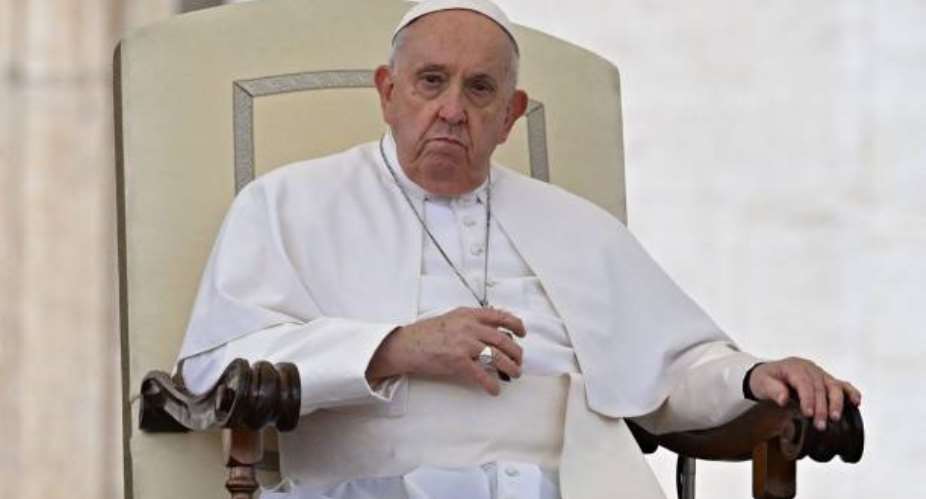There is a glaring abundance of hypocrisy in our world today. The recent suggestion by the Pope that Ukraine should capitulate in the Russia-Ukraine conflict and engage in negotiations with Russia for a peaceful resolution is deeply flawed. Ukraine’s stern rebuttal of the Pope’s stance is entirely justified. Where was the Pope when Russia was assembling troops in aggressive formations around Ukraine, preparing to invade? With his significant global influence, the Pope possesses the power to admonish Putin and demand peace, yet he chooses indifference.
The Vatican’s conspicuous ability to influence and address critical global issues contrasts sharply with its occasional apathy. During World War II, for instance, Pope Pius XII (1876-1958) outwardly maintained an indifferent facade and remained silent while atrocities were committed by the Germans against the Jews. Despite refusing direct pleas for intervention on the grounds of neutrality, he secretly aided a small number of Jews and urged select officials to assist them.
Ukrainians have unequivocally declared their refusal to surrender to Russia. It is now imperative for the Pope to utilize his moral and spiritual authority to intervene and advocate for peace. He can initiate diplomatic efforts, acting as a neutral mediator between the conflicting parties and facilitating dialogue and negotiations. His moral standing and impartiality could encourage leaders to engage in peaceful discourse. Besides, the Pope could offer Vatican City as a neutral venue for diplomatic talks or dispatch representatives to mediate discussions between Russian and Ukrainian officials.
Moreover, the Pope can mobilize the vast resources of the Catholic Church to provide humanitarian aid to those affected by the conflict, including refugees and civilians caught in the crossfire. Establishing a humanitarian fund to support relief organizations working in Ukraine would be a significant step.
Furthermore, the Pope can engage in international advocacy to promote peace between Russia and Ukraine. Leveraging his global influence, he can work with world leaders, international organizations, and religious figures to build consensus for peace. Addressing the United Nations and urging member states to collaborate towards a diplomatic resolution, with the Church's full support, would be impactful.
The Pope can also promote dialogue and reconciliation among religious and cultural communities affected by the conflict. By emphasizing shared humanity and values, he can foster understanding and unity. Organizing interfaith meetings to discuss peace and harmony will help bridge divides and promote solidarity among diverse communities.





 4,300 Liberians at Buduburam Refugee Camp to return home
4,300 Liberians at Buduburam Refugee Camp to return home
 Two dead in premix fuel depot explosion at Essikado-Ketan
Two dead in premix fuel depot explosion at Essikado-Ketan
 Driver of President Akufo-Addo convoy SUV dies in road crash
Driver of President Akufo-Addo convoy SUV dies in road crash
 Akufo-Addo's convoy in fatal crash
Akufo-Addo's convoy in fatal crash
 Mepe flood victims still in tents 8months after Akosombo Dam spillage
Mepe flood victims still in tents 8months after Akosombo Dam spillage
 Kpemka’s appointment as Deputy BOST MD is unconstitutional – Kwabena Donkor
Kpemka’s appointment as Deputy BOST MD is unconstitutional – Kwabena Donkor
 Voter registration: Two Togolese Nationals arrested in Buem for attempting to re...
Voter registration: Two Togolese Nationals arrested in Buem for attempting to re...
 DR Congo thwarts Kinshasa 'coup attempt': army
DR Congo thwarts Kinshasa 'coup attempt': army
 Media has made good progress in Ghana — Frema Opare
Media has made good progress in Ghana — Frema Opare
 Election 2024: NDC pledges to scrap betting tax, targets 80% youth support
Election 2024: NDC pledges to scrap betting tax, targets 80% youth support
